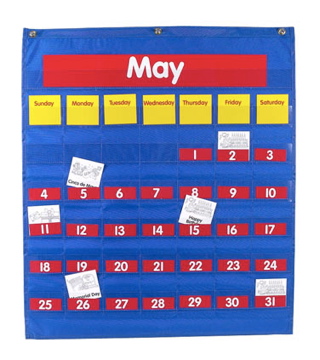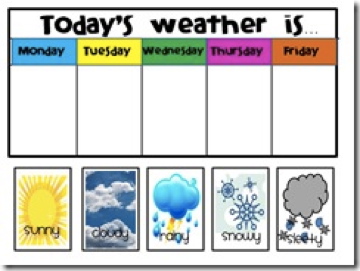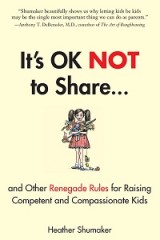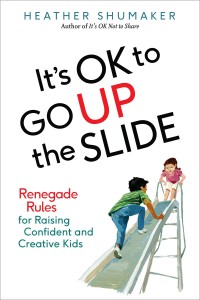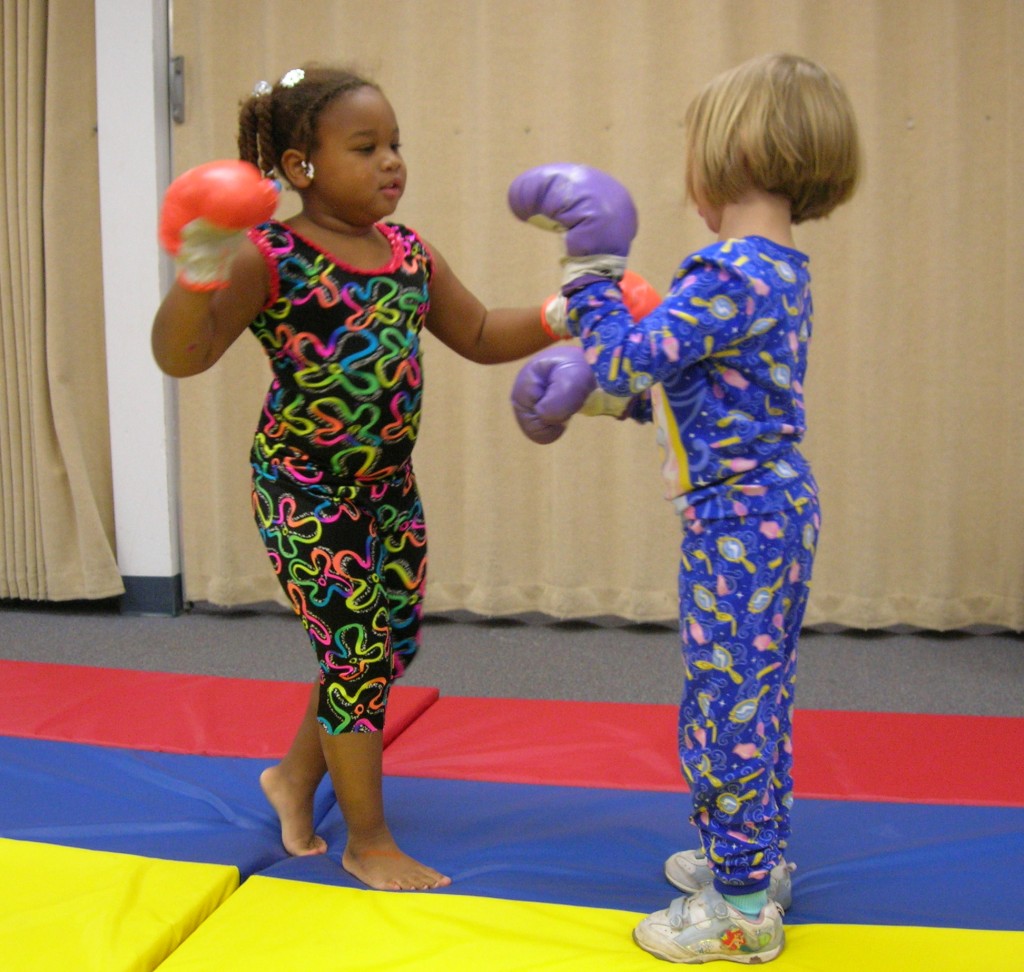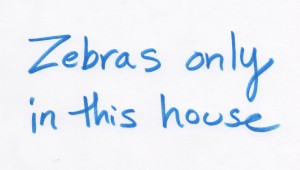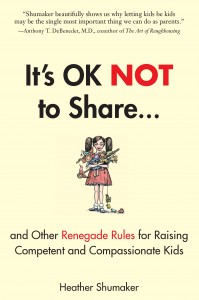Cut the Interrogation Habit
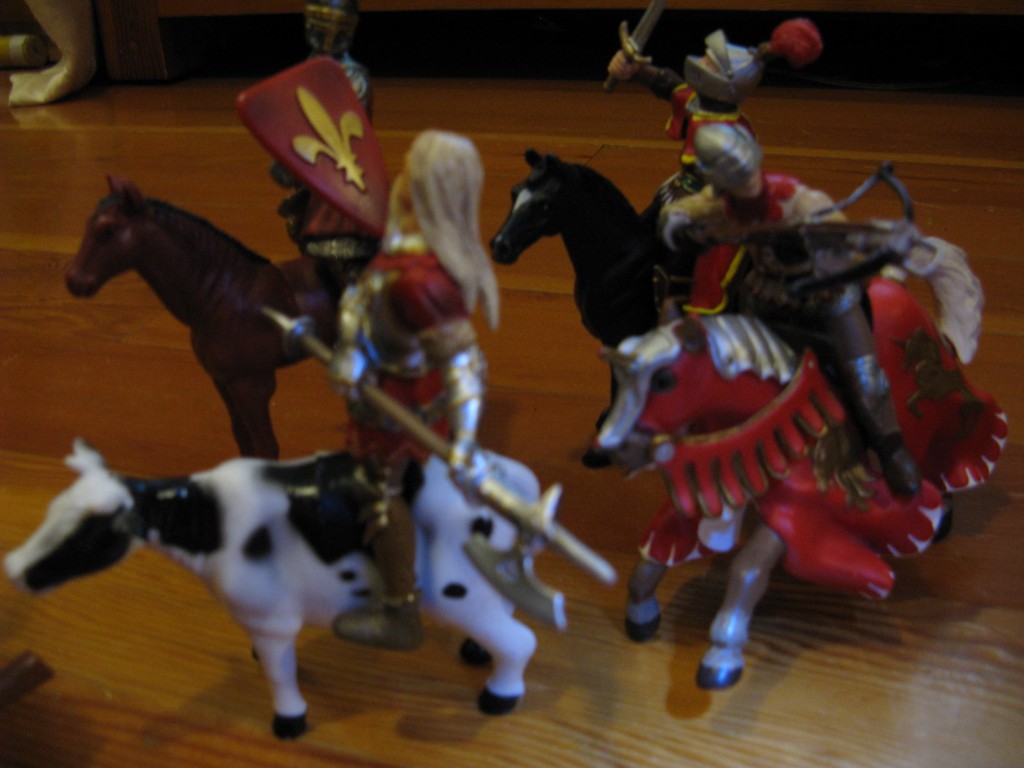
Which one is the red horse? Who cares? More important learning - use a cow if you run out of horses.
We recently got a new set of blocks for my son. Castle blocks - the kind with painted drawbridges and turrets. He loves all things knights and horses, and so far many towers and dungeons have been built, crashed and tumbled.
What dismayed me was the back of the package.
It's one of those Melissa and Doug toys - sturdy, wooden toys built to last and supposedly in touch with kids and their imaginations. Instead the package label exhorted parents to "Expand your Child's Learning." How? These were the suggestions: ask your child which are the yellow and red blocks, ask your child to count all the tower blocks, ask your child to sort the blocks by type, etc.
That's interrupting play. That's not expanding learning.
If you sit down to play a game of castles or blocks with your child, it should be as a playmate engaged in normal give and take. "Let's make a moat." "Do you need more blocks? Here - you can share mine." "Where should we put the knight?" "You've made a lot of windows."
Of course, adults don't always have time or interest in playing games with kids, and that's absolutely natural. You can still watch and engage your child by making observations "That's a tall tower." "Look at all the horses you have." Or leave them completely alone.
It makes me squirm when I hear adults constantly peppering kids with questions that are largely irrelevant to kids. "Which one is blue? Which one is orange?" "How many ducks are there?" "Where's the circle?" "What letter is this?" Listen carefully next time you hear it or say it yourself.
Colors are not hard. Let kids enjoy colors without being constantly quizzed about them. The same is true for animals, animal noises, counting, days of the week, weather, shapes and more. We seem to fixate on teaching young kids certain vocabulary words but ignore others completely (do we quiz them on which meal comes first, breakfast, lunch or dinner? on the difference between aunts, uncles and grandmas?). Kids are language machines. They pick up so much, constantly, from context and from caring people around them. They figure out on their own that their sister has two more pieces of candy than they do.
Here's some tips to break the quiz habit
- Make an observation. "You're using lots of purple in that picture."
- Share things you like yourself. "I love the orange and gold leaves on that tree! It's gorgeous today."
- Help a child reach her own goal (not yours). "I see you're building a tall tower using lots of blocks. Do you want to make it higher? The blocks are all gone. What could you use?" or "What do you need for your game?"
- Expand, don't interrupt. If a child is fully engaged in play she's already learning at her optimal level. Respect what's going on. Pause and ask a relevant question. "What's the king doing up there?" Don't change the subject.
- Say nothing at all. Don't interrupt a good thing.
- Don't ask a question if you already know the answer. "What does the chicken say?" This helps immensely to avoid power struggles, too, especially with catching kids in "lie traps." "Did you write on the wall?"
- Buy toys that are not advertised as "educational." Don't follow the "educational" or "enrichment" instructions on toys. Remember, it's all advertising, designed to make you feel you're not doing enough for your child. Resist!
- Read lots, sing songs, live life. Relevant vocabulary is all around us.
Were you quizzed as a kid? Do you remember how you felt about it? Why are we collectively worried that kids won't notice the beautiful colors of life?
